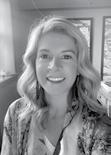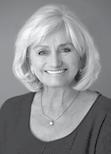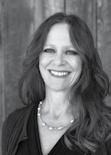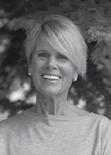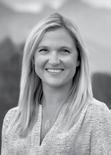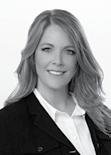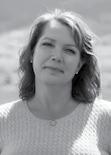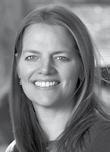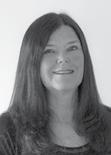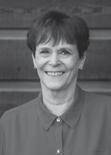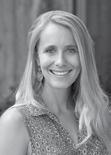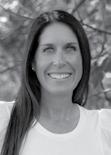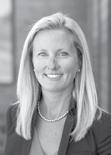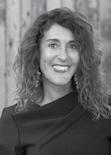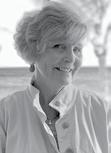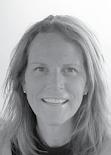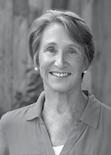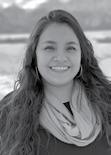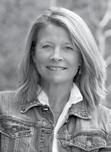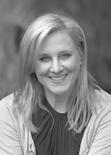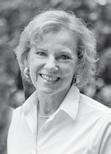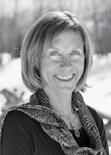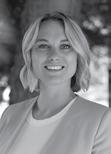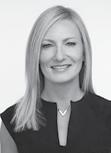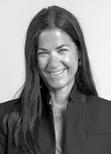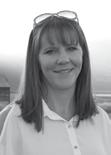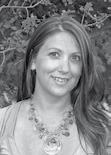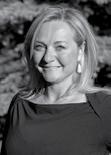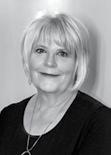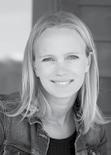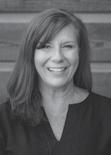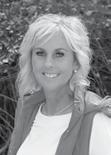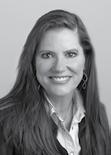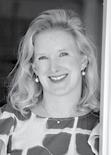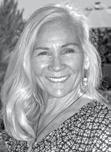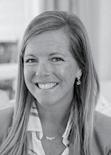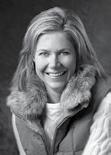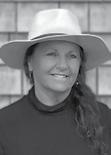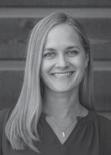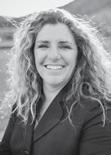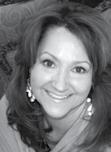jackson holeWOMAN Minding polls and rolls

Teton County’s Maureen Murphy is the latest in a long line of female county clerks. See page 3.


Teton County’s Maureen Murphy is the latest in a long line of female county clerks. See page 3.
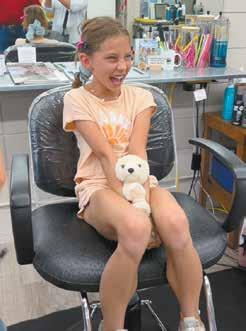
Just before school started, my daughter and I headed to Changes Hair & Nail Salon for the first time. Adeline, a fifth grader, wanted to get her ears pierced. My biggest concern was whether she was ready to take care of her ears after the piercings. Her biggest concern was the color of that first set of earrings.
When we introduced ourselves to the crew at Changes that afternoon in August we were greeted with a wave of interest in the 10-year old girl who was ready for her piercing. Patrons started excitedly telling stories about their own ear-related experiences, remembering their first favorite pair of earrings and wondering what color Adeline would chose as her first set.
As Adeline sat in the stylist’s chair gripping the arms and grinning wildly in anticipation of the initial sting, cheers went up and the room clapped for her bravery and beauty.
Women: They are crushing speed records in the mountains, overcoming medical odds with grace and grit and creating magic in a moment that will live on for a lifetime.
You can take my word for it, or turn the pages and read on.
— Jeannette Boner
Published by
PUBLISHER
Adam Meyer
EDITOR IN CHIEF
Johanna Love
MANAGING EDITOR
Rebecca Huntington
SECTION EDITOR
Jeannette Boner
PHOTOGRAPHERS
Bradly J. Boner, Kathryn Ziesig, Erin Burk
EDITORIAL DESIGN
Andy Edwards
CONTRIBUTORS
Jasmine Hall, Tibby Plasse, Deidre Ashley, Jennifer Simon
CREATIVE DIRECTOR
Sarah Wilson
ADVERTISING DESIGN ARTISTS
Lydia Redzich, Luis Ortiz, Chelsea Robinson
DIRECTOR OF ADVERTISING
Karen Brennan
MULTIMEDIA SALES MANAGERS
Tim Walker, Chad Repinski
DIGITAL CAMPAIGN, MULTIMEDIA SALES MANAGER
Tatum Mentzer
DIRECTOR OF OPERATIONS AND SALES
Tom Hall
PRODUCTION
PRODUCTION MANAGER: Dale Fjeldsted
PRESS SUPERVISOR: Stephen Livingston
PREPRESS SUPERVISOR: Lewis Haddock
PRESSMEN
Robert Heward, Gunner Heller, Cody Carlisle
CIRCULATION MANAGER: Jayann Carlisle
CIRCULATION: RuLinda Roice, Marissa Fronce, Thatoe Kyaw, Cody Carlisle
CEO Kevin B. Olson
©2024 Teton Media Works
Jackson Hole News&Guide
P.O. Box 7445, 1225 Maple Way, Jackson, WY 83002 Phone: 307-733-2047; Web: JHNewsAndGuide.com
It’s trend seen around the state, as 22 of the 23 county clerks are women.
By Jasmine Hall State Government Reporter
Elections. Budgets. Payroll. Liquor Licenses. Marriage certificates. Real estate deeds. Vehicle titles. Security agreements.
The list of public records and responsibilities a county clerk has to keep track of seems endless. Without them there would be no way to know who owns land, which politician rightfully won an election a hundred years ago, or when a couple decided they wanted to be legally bound.
“The clerk is the keeper of the history,” said Sherry Daigle, a former Teton County clerk who served in that role for 22 years. She said the county would face catastrophe without proof of any record.
Daigle is among the nine county clerks that Teton County has appointed or elected since 1921, six of whom were women. Josephine Saunders was the first appointed clerk, and she was selected by three county commissioners after Gov. Robert Davis Carey signed a law authorizing the formation of Teton County. The land was carved out of Lincoln County, according to the history laid out by the Teton County Centennial Planning Committee in 2021.
But county clerks existed long before the birth of Teton County in 1921. Clerks have a history dating back to ancient Greece, according to the National Associations of Counties. Research Director Jacqueline Byers said the title was derived from the Latin “clericus,” meaning a person who could read, write and serve as a notary.
“English history shows that the role of the city clerk can be traced to 1272 AD,” Byers wrote. “A quote from Chief Justice Lorde Caldecote, in a ruling in a legal case before the English Court during the Middle Ages says, ‘The office of town clerk is an important part of the machinery of local government. He may be said to stand between the local council and the ratepayers.’”
America followed suit with the system it knew as forms of government were established, and the earliest office created was in colonial Massachusetts. The recorder had to maintain the vital records of births, marriages and deaths for the church, and government appointments, deeds, meetings and elections. As the nation grew, Byers wrote, many states decided a county clerk should be an elected office.
The first local government election in New City in 1686 included the offices of sheriff, mayor and city clerk. Now, 24 states across the nation elect county clerks, including Wyoming.
The person doing the job in Teton County at this very moment is Clerk Maureen Murphy. She took over the office after Daigle left in 2020 and has served as clerk for four and a half years.
“It’s all about service to the community,” Murphy said, sit-
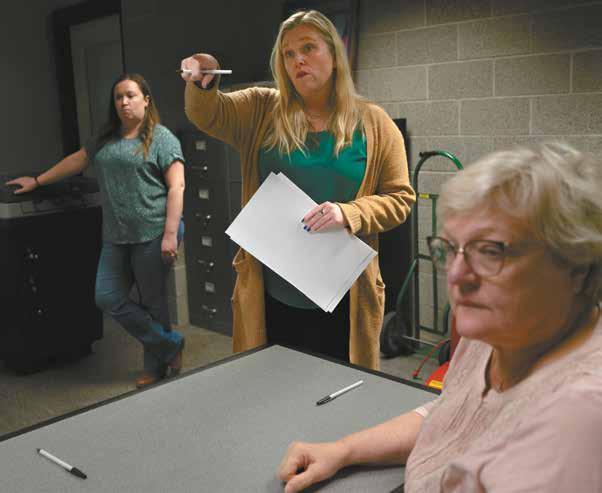
ting in her personalized office in the basement of the Teton County Administration Building. “My dad instilled in me a sense of service, so I worked at the Chamber of Commerce for 13 years, serving this community in that aspect — trying to bring more business to them.
“And then when this position opened, I thought it was also a chance to give back to my community that has given me so much.”
Murphy is one of the 22 women out of the 23 counties in Wyoming serving in the office.
The only man is Platte County Clerk Malcolm Ervin, who currently serves as president of the Wyoming County Clerks’ Association. He’s been the only male clerk who has served in the state during her tenure.
Anecdotally, the office of clerk in Wyoming has long been held by women. Daigle held the office for more than two decades before Murphy and said that for the majority of her tenure there were no male clerks in Wyoming. She said there was a joke at the state level about this fact.
“There was one that we heard from the Legislature that the hens are clucking again,” she said.
Mary Lankford, who served as the Sublette County clerk from 1987 to 2019 and is the current lobbyist for the Wyoming County Clerks’ Association, noted a similar trend. She and Daigle were both brought under the wing by former Teton County Clerk Jolynne Coonce, who was in office from 1965 to 1998.
Lankford said it could be the word “clerk.” Both she and Daigle said clerical and secretarial work has been associated with a woman’s job for decades in America, as opposed to management or administrative work.
All three clerks agreed gender didn’t matter when it came to the role — it takes a special kind of person to handle the pressure.
“There are many facets of this job,” Murphy said. “To be a successful clerk you have to be able to multitask. You have to be able to organize many dif-
ferent things and compartmentalize. I don’t know if in history it just seems like it would be a woman’s job compared to a man’s.
“But I just personally think that it takes a strong person, regardless if you’re a man or a woman, to do it, especially in the current times with elections.”
She said no one realizes the amount of information a clerk has to take in every day, but she loves the fact that she’s never had the same day twice. She said elections might be her favorite part of the job, besides the people, because it upholds democracy.
Clerks are the chief election officers in their counties and are held accountable for ensuring the security and the results of the election. Their signature certifies the final count.
In recent years, county clerks have been placed further under the microscope. Constituents might not have known what their county clerk did before, but as the results of presidential elections and security measures in place have been questioned –
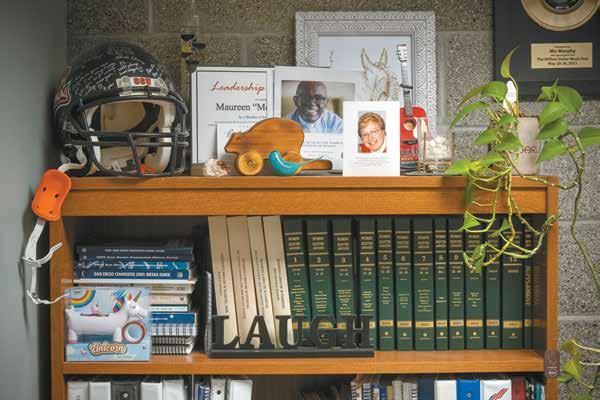
many are looking into the job. Even county clerks face scrutiny from the state.
“All 23 of us would rather lose our right arms than have something go wrong with the election,” Murphy said. “Every single one of us stands with integrity. It’s our name on the election.”
Teton County is one of seven in the state that has a dropbox available for constituents to turn in their absentee ballot no matter the day or hour. The clerks have faced pressure to get rid of this option for voters from Secretary of State Chuck Gray.
“Teton County is a unique community, and the voters in Teton County voted me into office, so that’s who I represent,” Murphy said.
She said the decisions she makes are on behalf of the community, whether that be defending the right to use the dropbox or advocating to the secretary of state that P.O. box addresses shouldn’t disqualify voters from only using their Wyoming ID to verify residency. She said she had great conversations with Gray about the fact that 14,000 residents in Teton County only have P.O. boxes on their licenses when he was considering changing voter registration rules earlier this year.
“I’ll follow the laws the way they’re written,” Murphy said. “I have to. That’s actually one thing that is different about elected office is that we live by the Green Books that come out of the Legislature.”
She pointed to her shelf of statute books. Title 22 is Elections, and Title 18 is counties.
“That’s what I live out of,” she said. “I just will also stand up if there’s a gray area for what I think Teton County voters would want.”
Murphy said she succeeded a long line of strong, independent leaders in the clerk’s office who wanted the same outcome.
“I also succeeded a very strong, independent woman who left her mark on this position and will forever, being in it for 22 years,” she said. “Sherry was the leader in getting out voting equipment that we have. She was a leader in many things that have happened across the state.”
Daigle gave credits to her predecessor as well but recognized how she herself brought the office into the future. She helped digitize all of the records and pushed for an electronic ballot scanning system instead of the punch card system that led to all the hanging chad jokes following the Bush vs. Gore 2000 presidential election. Wyoming was one of the first in the nation to move to the electronic system and ensured the tabulators were programmed outside any network available to hacking. Machines to this day are still not able to connect to the internet.
She was also a big proponent of creating vote centers with the Laramie County clerk at the time.
“She and I were the first counties in the state to go 100% vote center,” because she wanted to make voting more accessible.
There were bumps along the way, and she said the Legislature was hesitant of many of the changes they advocated for
Fewer than 1 in 4 registered voters cast a vote in Wyoming’s August primary election. Just over 20% of the electorate determined the outcome of roughly 80% of the races in the state.
How did we get here?
Well. When our laws are changed to make it harder to vote we shouldn’t be surprised that very few people cast a vote.
In 2021, then-Minority Whip Andi LeBeau made an impassioned speech on the floor of the Wyoming House. She reminded the body that the Voting Rights Act of 1963 granted Indigenous people the right to vote. That her mother and grandmother were among the generations of women who could not cast a vote in Wyoming or U.S. elections.
When she finished, a series of men stood up to explain why they believed a bill further restricting access to voting was vital and necessary. Every single legislator conceded that there was and is no voter fraud in Wyoming. ... then charged ahead to change our laws anyway.
One lamented the end of the “good ol’ boy era,” an especially tone-deaf sentiment in the context of Rep. LeBeau’s remarks. (Even with the benefit of time the tone-deafness has yet to diminish.)
Another said, “You have to show your ID to open a bank account or buy a beer!”
While both of those things are true — you do have to show identification to open a bank account or buy a beer — it’s an argument made in bad faith: The U.S. Constitution does not give you the right to open a bank account or buy a beer. It does confer upon you the right to cast a vote. We do not speak about opening a bank account as “sacred,” a word often used in reference to the right to vote.
In that debate — and in the years since — we’ve heard the same men question the existence of voter suppression. (This is not a surprise: White men have always had the right to vote; their vote has never been the target of suppression.)
So when a woman, especially an Indigenous woman speaking from her family’s experience of voter suppression, pointed out that a new bill would lead to future voter suppression, we would have done well to listen to her.
Lately, voter suppression masquerades as “election integrity.” From “voter fraud prevention” to “voter identifica-

tion” to the governor’s executive order to the national SAVE Act, these cleverly named and seemingly benign bills often have a big impact on select populations. They disenfranchise the elderly, those living in poverty, the working class, Black voters, Indigenous voters, naturalized citizens, rural voters, and women.
And it could get worse for women.
Among the provisions in the SAVE Act: Lacking a passport or other proof of citizenship that shows their married names, women must produce a birth certificate (bearing the seal of the state where it was issued) and a current form of identification, both with the exact same name on them.
Sounds simple, right?

Roughly 90% of women who marry adopt their husband’s last name. That means that roughly 90% of married female voters may have a different name
on their ID than the one on their birth certificate. According to the National Organization for Women, one-third of all women have documents that do not identically match their current name. That could instantly disqualify women in the midst of a name change. Women are more likely to work minimum wage and highly regulated jobs where it is more challenging to get enough time off to get to the polls. Let’s say they get to their polling place and they’re among the 90% without two forms of identical ID. At that point it’s likely they’ll have to cast a provisional ballot. That means they’ll need to come back to the polling place — doubling the amount of time and travel away from work — to prove out and have their provisional ballot counted.
For women who experience stalking or intimate partner violence, casting a

vote may put them in significant danger. Registering to vote in most states, including Wyoming, means making your address public. Voter files are public information except in states that have made provisions for safety-based exclusions.
Policy changes around elections might seem innocuous — as though they are gender neutral or all about “election integrity” and “security” — but, like all policy decisions, they demand our attention and a closer look.
Laws generally reflect the experience and ideology of the people making them, which is why Rep. LeBeau’s warning was so important and prescient. When only 1 in 4 people cast a vote — and elected officials insist on making it even harder to cast a vote in the future — voter suppression is a clear threat to our democracy.
Jennifer M. Simon is the founder of the Wyoming Women’s Action Network, a nonprofit dedicated to inspiring action to advance the economic wellbeing, health, and representation of Wyoming’s women and families.



Women
Parenthood is filled with all sorts of highs and lows, it can bring immense joy and fulfillment but also presents challenges that can lead to significant stress, particularly for women.
Concerns about this issue prompted U.S. Surgeon General Vivek Murthy to issue an advisory on the mental health and well-being of parents. Additionally, a recent survey conducted by the American Psychological Association revealed that nearly half of all parents experience overwhelming stress daily.
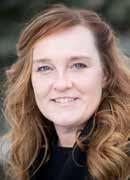
of raising children. Sources of stress include financial strain, trying to squeeze a few more hours into the day to be all things to children and bosses, or plain exhaustion from dealing with the obligations of caregiving. It is often women who carry an unfair burden of these pressures, resulting in negative consequences for them and their families.
Today’s parents are not only grappling with traditional parenting concerns but also facing modern stressors. Those include the pervasive influence of technology, an escalating youth mental health crisis, as well as broader societal anxieties about the future. While increasing levels of parent stress are concerning, they can be doubly intense for single parents and women.
Deirde Ashley
Parental stress is the emotional and physical strain parents experience constantly as they navigate the demands
Women frequently encounter higher levels of parental stress due to societal norms and traditional gender expectations. As primary caregivers, they juggle numerous roles, from managing household responsibilities to addressing their children’s emotional and educational needs. That balancing act can often result in feeling overwhelmed. Parental stress can emotionally nail you. Juggling responsibilities and being pulled in a million different directions while making sure your children are getting the love and attention they need, can cause stress. That ongoing stress can lead to selfdoubt and feelings of inadequacy, complicating your ability to maintain a positive
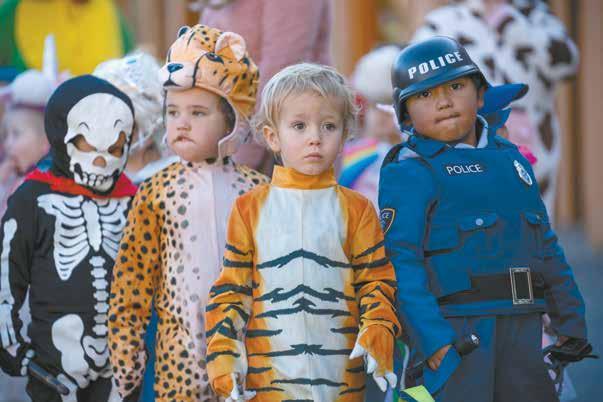
self-image.
Parental stress has repercussions that go way beyond emotional distress; it frequently shows up as physical symptoms. Excessive stress can lead to burnout, migraines and even more severe health issues such as high blood pressure levels. On top of that, many women experience a direct correlation between their stress and their physical health, which only adds to the emotional turmoil.
Kids feel it too
Children are sensitive to
their parents’ emotional states and often know when stress levels are high. That awareness can lead to increased anxiety and behavioral problems. During stressful times, children may exhibit changes in behavior, reflecting the tension in their environment. Recognizing this con nection is crucial for maintaining children’s mental health.
Recognizing the problem
Identifying the signs of parental stress is essential for effective management. Her e are some common symptoms
to be aware of:
• Irritability: Increased frustration or annoyance.
• Fatigue: Persistent tiredness despite adequate rest.
• Physical symptoms: Headaches, stomach issues or unexplained aches.
• Social withdrawal: A tendency to avoid social interactions or to feel disconnected from friends and family.
Strategies for managing
While parental stress is common, there are several strategies that can alleviate



But what is next for the young leader? Time will tell.
By Kate Ready Contributor
On a Friday morning in early October, the News&Guide spent about an hour chatting with outgoing mayor Hailey Morton Levinson. The mother of three since being elected mayor in 2020 has devoted a third of her life to public office.
Morton Levinson discussed what inspired her to run for Town Council in 2012 at the historic age of 26. In her last 12 years in office — eight years on the council and four years as mayor — she transitioned from a young woman passionate about representing young voters, to being Jackson’s first-ever mayor who was pregnant while in office, to running the town as a mother of three. She took us inside her juggling act and how strong boundaries allowed her to serve in public office while also running her family business, Inn on the Creek, as well as contributing to Rotary Club, which has raised $1 million for student scholarships over four years.
Morton Levinson looked back on her biggest lessons in leadership and what the next chapter holds, the challenges she sees on the horizon and how she will continue fighting for a more representative democracy.
This conversation has been edited for clarity.
Q:What was your earliest realization that you had this desire to serve others?
A:Giving back to the community has always been my family’s mission. I’ve always loved being part of our community and giving back. In the first grade, I started in Girl Scouts. It really does go back to my family that our community is what we make it and giving back to it is how we make it better. ... My dad was a Rotarian and I’m a Rotarian now too. Lately I’m realizing how big that is for me.
Q:Could you expand more on your latest realization of that?
A:It gets into the connection I feel. I grew up in the hospitality industry, and an important part for us was connecting with people and sharing this place with people from all over the world. Getting to see Jackson through a visitor’s eyes — it’s something not to take for granted. We’re stewards of this area.
Q:I’m really struck by how involved you are as mayor, in the Rotary Club, and a mother of three kids. How do you juggle it all?
A:I’m lucky to have support from my family. Right now I’m at the Inn [on the Creek] cooking breakfast for tomorrow. But all of my hats are similar in the sense that it’s all for a purpose of building community.
But if you’re thinking about my day-today, I’m a really good scheduler. So that is a good asset to have when you do a number of different jobs. I think, set some good boundaries around being mayor, always welcoming folks talking to me but also being able to say, “OK, I’d love to chat about that. I can’t talk about it right now.” I’m pretty good at those boundaries, or I’ve become better in my 12 years of elected office.
I would also say, a huge shoutout to the Town of Jackson staff. They do a really good job in supporting me and the other electeds in being able to get us the information that we need or talking with constituents when I can’t necessarily be the first one they chat with.
Q:Is there a common grievance or challenge that you’ve heard from women in the community during your eight years as

a town councilor followed by four years as mayor?
A:When I first ran I was much more focused on my age group, actually, and I felt that my age, 26 at the time, was a really important part of my identity, and having younger people run for office. As I’ve had more time in office I’ve really realized how having that representation has been important to me. In general, I’ve always looked at it as one of the important parts of this is that I am a woman and that I’m also raising my family.
Q:Do you have any tips for younger people who want to run for office as someone who’s taken up that mantle?
A:I always joke that when I first ran I didn’t know exactly what I was getting myself into, and that’s actually a good thing, because I probably would have overthought it or been like, ‘Oh, I need more experience.’ And I think that’s a common tendency of women and of young people. But there’s a nationwide group that always says: “If you care, you’re qualified for running for office,” and I think that’s really true, because if you care, it doesn’t matter what age you are, what gender you are, your experiences are important, and if you care enough to consider it and to run then you’re qualified to do that.
Q:At this point you’ve spent almost a third of your life in public office. What first inspired you to get into politics when you were just 26?
A:I first ran because I had gone away to college and then came back and realized I’m going to stay here. And so it was actually a family friend, and my initial reaction was like, “No, I don’t know what it takes to be a council member.” But then I decided to look into it. And I looked into it, and I wasn’t mad about policies at the time, necessarily, or about those who had been running, but it was really that calling to have more representative democracy. And I saw that the incumbents were running again. And some of the folks had been in office for, like, 16 years.
I think it’s really powerful when we all show up, and this community is that place. I think we generally do. That’s something that I love about Jackson, whether it’s politics or civic organizations, volunteering ... that’s something that I don’t take for granted, because, as we can see, and as I have more expertise now with land development regulations and all that is that you have to fight for that to keep those community members here.
Q:Youtouched on needing to develop expertise in housing and land regulations, and I’m curious: What were some of your biggest lessons while serving in public office?
A:I didn’t have those expertise when I started, and again it gets back to that, because that would certainly hold people up. If you’re looking at that sort of thing, it’s knowing who to look to for the answers or for that experience when you don’t have it. And that’s something that I’ve built a strong foundation in: being able to ask for help.
But also, there’s knowing who’s giving you that good advice or good expertise. Not everyone is doing it without other motivations.
I’ve always really been open to feedback from the community and from constituents. I think it’s funny too. You say “constituents,” because that’s the term you use, but it’s never been for me. In my mind it’s not us local government versus the constituents. We’re all one community, and I’m a person working my regular job outside of being there just as much as anyone else.
Q:You bring so many interesting perspectives here of being a woman, being a mother in office, being someone who is holding multiple jobs. Do you feel like those things have helped you in certain ways? And do you have any examples of times when you’ve drawn on your own experiences?
A:So I’ve had all of my kids while I’ve been in office, and I got married between my first primary and the general election. I’ve been, I think, the only pregnant mayor that we’ve had, and only the fourth woman mayor.
If I’m looking at my “being a mom” hat, the patience that I have has improved. I have a lot more. I get a lot more lessons in patience from my kids these days, and that has definitely helped in elected office, and vice versa.
It’s having those perspectives of either being a mom or working in a small business. I feel like Jackson ... we still really operate like a small business, like we lean on our employees. Everyone pitches in and ... I think that that’s a good thing. That’s something that I’ve always appreciated about the Town of Jackson: that we have this culture of running it like a small business, and we all wear multiple hats at certain times. And no one ever has said to me, “No, I’m not going to do that because that’s not my job.”
Q:I haven’t heard that comparison between the town and a small business. Speaking specifically to women now: Do you have any recommendations for avoiding burnout?
A:I have definitely developed a strong routine of how to not get burnt out, and that’s really strong boundaries. Being someone in elected office, I think that’s the idea that I have to be at all the ribbon cuttings and setting those boundaries is ‘No, I don’t necessarily have to be at all of those.’ I pick the ones that are really important to me.
Having kids, I had to get a little bit more dialed in on my practices for resilience too. Like having time to myself: Every morning I have one hour where I’m working out or just having a cup of coffee, reading a book. I’m pretty strict on having that time so that I can set myself up for feeling good about the day or the week.
I also recognize that I’m really privileged to have the support of my family, to have a flexible job and to be able to do all these things. I recognize that not everyone has that foundation.
Q:You announced this year that you will not be seeking reelection. When you look back on your time in office, what are some highlights that you’re proud of?
A:There’s so many. I think back to 2012 when I got elected, and one of the first things that we started doing was rezoning the town. So there’s a lot that we’ve done. But the thing I’m most excited about that is still in play is we changed the way we do housing a decade ago in the sense that we started providing the land and partnering with private developers. We’ve been able to build a lot more housing units with that model. I’m really proud to be part of that and to move that forward.
I was the youngest Town Council member ever elected, and I remember sitting next to Bob Lenz, a former council member, and he was the oldest elected official. We overlapped six years, and he’s still one of my favorites.
It was interesting because a lot of things that we agreed on were those pedestrian public amenities.
But I would be talking about how I’m pushing baby strollers down the street and realizing how hard it can be while he was saying that, being an older person, having any unevenness in the ground made him concerned for tripping or a desire for more light at night.
KBy Jeannette Boner Education Reporter
atharine ConoverKeller was traveling a lot last year.
With a daughter in Hong Kong, a son in New York and nine shared grandchildren between her and her husband, Fred, she was on the move. Between ski dates with friends on the mountain and serving as chair of the St. John’s Hospital board she was happily humming along.
“I had a sore throat, and I thought, ‘This is just what happens when you spend so much time on the airplane,’” Conover-Keller said of the first time she noticed the tenderness when she swallowed.
But the nagging discomfort led her to see a doctor, which would led to a CT-scan and then a PET-scan — more formally known as positron emission tomography — which can see cancer cells better than a CT.
And then there was the biopsy.
When the doctor walked in with the biopsy results, he didn’t have to tell ConoverKeller anything. She already knew.
It was cancer.
“The good news is that it’s highly treatable, but the treatment will be painful,” is how the doctor explained the next steps to her last fall. “You can get cured, and people who have this are still walking around 10 years later.”
But what was surprising to Conover-Keller was the type of throat cancer she was diagnosed with: oropharyngeal cancer, which is caused by a type of human papillomavirus or HPV, which is spread through sexual activity.
“For a long time I was embarrassed to say that,” Conover-Keller said of acknowledging that the cancer was from a specific strain of the HPV virus: HPV-16.
Though there’s an HPV vaccine now, it did not exist when Conover-Keller was of
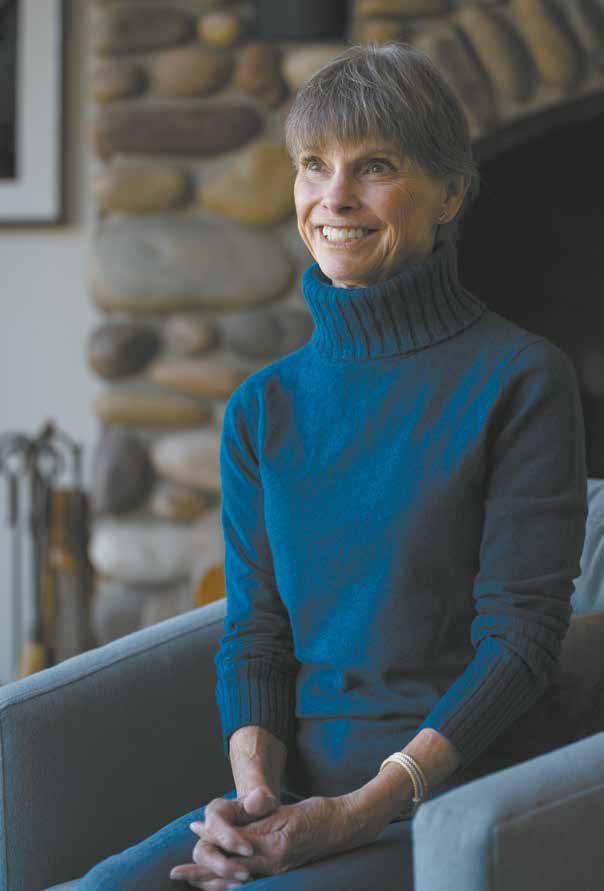
age to get one. HPV infections are very common, and according to
the Centers for Disease Control and Prevention, nearly everyone will get HPV at some point in their lives. While most HPV infections go away on their own,
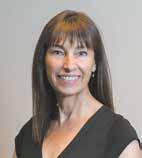
some can cause cancer. For women the most common form of cancer from HPV is cervical cancer. Throat cancer is most common in men with HPV, but it does occur in women. In 2021, less than 2,500 women were diagnosed with throat cancer, while more than 12,000 men were diagnosed with throat cancer due to HPV.
In the U.S., HPV causes about 36,000 cases of cancer a year in both men and women, with more than 42 million Americans infected by variou s types of HPV, according t o the CDC.
Conover-Keller sojourned to the Tetons in the 1990s after her mother died from a form of skin cancer in 1989.
“I was so sad that I convinced the family to move to Jackson for a year,” ConoverKeller said. “But I have to say, this is a very comforting place.”
And so she and her family stayed.
It took some adjusting to mountain town living from the urban matrix of Manhattan, but the rugged terrain appealed to Conover-Keller and her spirit would embrace the sweeping, wide-open spaces. This was home.
After her children had fledged themselves, ConoverKeller earned a master’s degree from the University of Denver. She went on to hold community leadership positions as executive director of the Community Safety Foundation and president of the Community Foundation of Jackson Hole.
And just when she thought it was time to retire, she pursued an appointment for an open seat on the St. John’s Health board. It’s here that she continues to serve.
Conover-Keller was on the ski hill when the doctor called after the biopsy. She turned to the friend she was skiing with and said it was a bad sign when
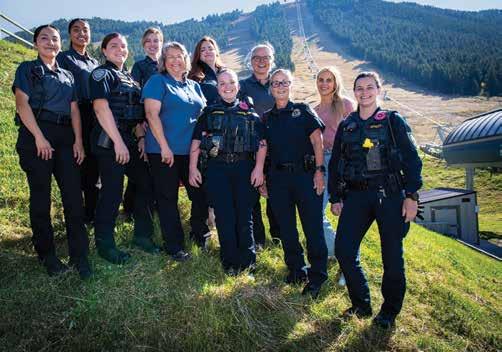


Signature P
Under the expertise of Dr. Laura Cooper, our team offers patients the best of both worlds: highly-trained and effective surgical care within a warm, thoughtful, luxury medical spa environment.
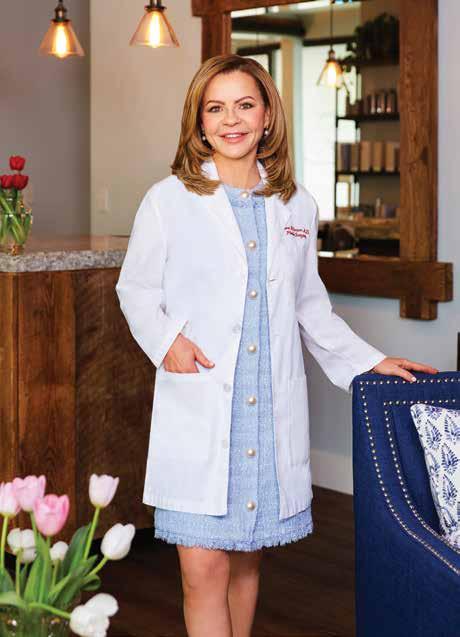
FACE
Blepharoplasty (Eyelids)
Brow Lift
Face Lift
Neck Lift
Fat Grafting
BODY
Abdominoplasty
Arm Lift
Thigh Lift
Liposuction
BREAST
Augmentation
Mastoplexy (Lift)
Reduction
Aesthetic
Breast Revision
Reconstruction after Breast Cancer
Botox / Dysport / Xeomin *
Filler (Juvederm / RHA) *
Sculptra *
Kybella *
CoolSculpting
Morpheus 8
FaceTite
NeckTite
BodyTite
BBL
Moxi
HALO
Profractional (Erbium)
Forever Clear (Acne)
Hydrafacial MD
Dermaplane
Microneedling
Chemical Peels
Waxing
* All Injections Performed by Laura B. Cooper, M.D.
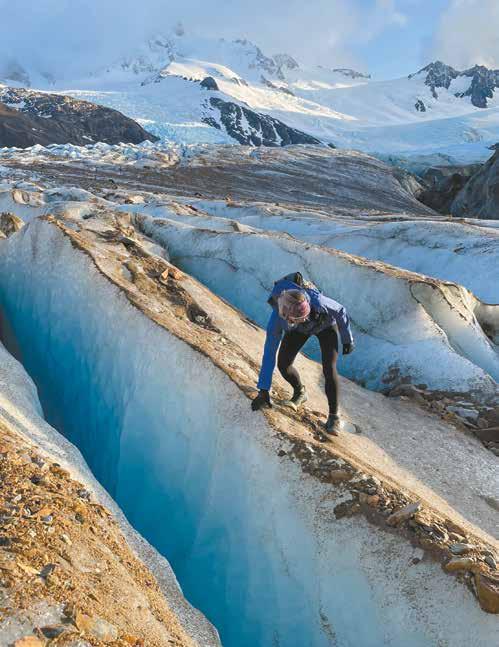
Kelly Halpin finds purpose in the pursuit.
By Kyle Leverone Sports Editor
Kelly Halpin’s professional running career has been a dream come true.
She grew up climbing and riding horses in Teton County and traveling to compete in big mountain snowboarding competitions all around the country, but she never seriously considered running as one of her true passions. One winter, however, in between North Face Master Snowboarding Series competitions, she blew out her knee riding on a powder day at Jackson Hole Mountain Resort.
After her injury she began having really vivid dreams about running in the mountains.
“Apparently some part of me very deeply wanted to be running in the mountains,” Halpin said.
Two years later she followed her dreams and became the first woman ever to complete the Grand Teton Picnic, and with it she jump-started a professional career that has led to numerous Fastest Known Times, course records and once-in-a-lifetime experiences.
Most recently she embarked on her first official stage race ultramarathon in Bhutan with hopes of finishing the unique race and raising awareness for climate change.
Check out her website, and you will find a resume with nearly 50 entries on it. None of them include past work experience and references from old bosses. Instead, the vast majority of them describe all the running records she
holds and all the top finishes she has accumulated.
In 2020, Halpin did the Wind River High Route solo and unsupported in 59 hours. No one had ever done it in such a time, and that year she won “FKT of the Year for it by FastestKnownTime.com. 2020 was the year of the pandemic, but because of that it was also the year of the FKT — because what else were people going to do? Still, no one had a more impressive fastest time on any route anywhere.
Last summer, Halpin went back and dropped her time on the route by six hours.
Earlier this year she ran in the Barkley Marathons in Morgan County, Tennessee. The five-loop, 20-plusmile, off-trail course is considered one of, if not the toughest ultramarathons in the world, and only the fittest and most bonkers athletes are invited. Since 1989, only 20 people have completed it, and Halpin made it through most of the second loop.
Last winter she also won overall at the Running Up For Air Grandeur Race in Salt Lake, in which she did 12 laps for 75 miles and 35,000 feet of elevation gain in 24 hours. Oh, and she broke the women’s course record. That race is put on by Jared Campbell “to celebrate a shared passion for running, amplify informed dialogue about air quality issues, and support organizations that are working toward solutions,” per the race’s website.
“The environment is everything,” Halpin said. “I believe that humans are meant to be out in nature, and I think we should do everything we can to protect everything that’s left.”
Climate change awareness was one














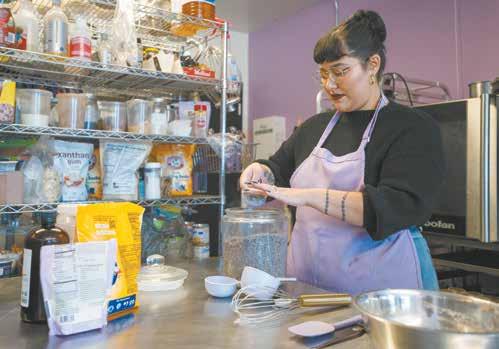
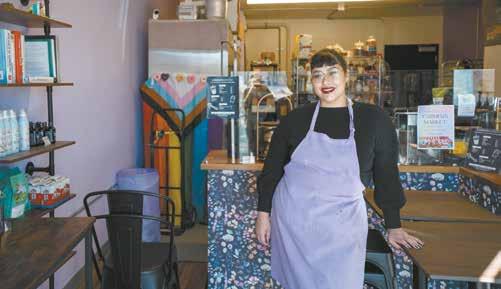
For baking entrepreneur Alicia Muñoz-Marmsater, life on her terms is the recipe for success.
By Tibby Plasse Contributor
Alicia Muñoz-Marmsater’s passion for pastry is truly satisfied when someone doesn’t realize her baked goods are gluten free — or vegan or soy free.
The Arizona native began baking before high school graduation. Starting off in what she called a “momand-pop” Phoenix bakery for her high school internship, Muñoz-Marmsater quickly realized her attention to detail was satiated by recipes for the 60 or so special orders for pies and wedding cakes the bakery received each week.
Just a little over three years ago, Muñoz-Marmsater moved up from
“I’ve been able to network with other women in business and, gain that support system of women who understand what it’s like to start a business from the ground up and put everything into it.”
— Alicia Munoz-Marmsater
Phoenix for a change of pace and scenery. She had been working full time at a resort in Phoenix for several years and had never been to Idaho. She took a position at Teton Springs as a seasonal pastry chef. She was planning on alternating the opposite high tourism seasons between Idaho and Arizona. It was a good idea, but she’s never returned to the Grand Canyon state outside of visiting family and her seven siblings.
“Life happened really fast,” MuñozMarmsater said sitting at her prep table surrounded by a lot of lavendercolored cooking utensils and storage containers. Even the to-do list’s dryerase board marker is purple at Dulce Baking Company.
“It’s my brand and my favorite color,” she said, smiling, and dressed a little more punk rocker than your average lavender fan. “I had to choose pink boxes because I couldn’t find purple.”
Muñoz-Marmsater was diagnosed with celiac disease while she was still in Arizona, and she said it’s her mission to be as inclusive as she can when it comes to enjoying the sweet life. Sometimes the only gluten-free option is a sorbet, and she is determined to find the right recipe to fix that. Muñoz-Marmsate r admitted she studies cookbooks relentlessly looking for the right ingredients and process so they possess the right texture and, most importantly, taste.
“All of the recipes I use today are recipes, I have either created from nothing or gained inspiration from and made my own from other bakers,” she said. “I do try to re-create things that I grew up loving like, for instance, qantas, that’s Mexican-style sweetbreads — I’m still working on perfecting that one because it’s a very specific texture.”
The 28-year-old owner of Dulce

Baking Company is celebrati ng her first anniversary in her retail store at Depot Square in Driggs, Idaho, which provides incubator space for emerging businesses. Muñoz-Marmsater had been working out of her home for two years, baking while pregnant with her daughter. She had an epiphany and took her business plan to the City of Driggs.
“I just knew that I would not be able to go back to working full time right after I had her,” Muñoz-Marmsater said. “And, you know, most places, don’t really give maternity leave, at least not paid, so I decided that I wanted to try something — and my husband was super supportive of it.”
Muñoz-Marmsater met her husband, Lars Marmsater, while working at Teton Springs, where he is the assistant superintendent of the golf course. The two were married this past September.
Aside from being a dedicated gluten-free bake ry whose alternative flour mix is all of Muñoz-Marmsater’s making, a blend of white rice, brown rice, tapioca and potato starch, the operation is one of the few Latina-owned businesses in the valley with a storefront.
“I was not really aware that there was such a large Hispanic community,” she told the News&Guide.
“The funny thing is so many people in Latin America are lactose intolerant, and a huge population shouldn’t be eat -

ing dairy, which is the main ingredient in Tres Leches Cake, so it’s one of the main things I make here.”
Muñoz-Marmsater is also vegan, so her variation on the traditional dessert can be free of eggs as well.
Muñoz-Marmsater’s capacity to dance around diet re -
strictions is being noticed by both sides of the Tetons, with a number of brides seeking out alternative approaches to cake. Muñoz-Marmsater said she could barely look up this summer from wedding season and her Friday mornings at the Teton Valley Farmers Market. Now t hat pie season
is upon her, she said it’s not the same hecti c pace as summer. The change in season is also giving her the chance to support the newly formed Teton Valley Women’s Business Initiative.
“It’s just amazing: I’ve been able to network with other women in business and, gain
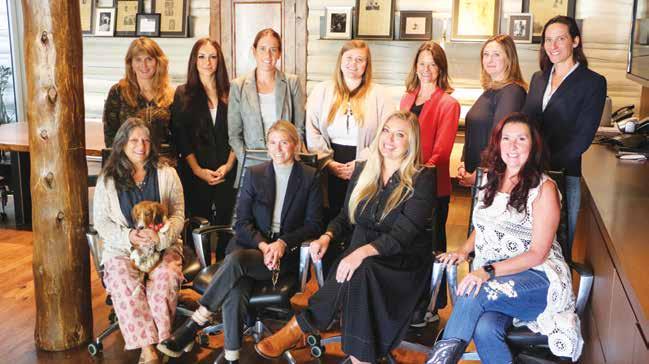









that support system of women who understand what it’s like to start a business from the ground up and put everything into it — and as mothers, we know how hard it is to juggle it all.”
Contact Tibby Plasse at s chools @jhnewsandguide. com.
NOT PICTURED:
CASPER OFFICE:
PINEDALE OFFICE: Delaney Voigt
NEW MEXICO OFFICE:



For more than 30 years, Marsha Holden has made everyone a part of the community by making them feel (and look) their best.
By Jeannette Boner Education Reporter
The early autumn sunlight is bright through the front windows of Changes Hair & Nail Salon, pouring an extra measure of warmth into the business tucked into the northeast side of Jackson.
Marsha Holden has taken her position in front of the large, clear mirrors in her shop — the diffused sunlight just on the cusp of colder days ahead acting as a spotlight of sorts.
“This is my stage,” she says gesturing to a greater audience that spans three decades and a community of clients, many of whom call Holden a friend. And keeping within character, she throws her head back and laughs deeply, her smile broad and genuine.
Showtime.
Holden is master chemist and a consummate keeper of all the secrets. She’s your biggest fan, most ardent supporter and, as clients attest, the first to ask how she can help if there is trouble, pain or even if it’s just a bad hair day.
“You have to be a special kind of person to work with people all day,” Holden said. “People’s identity is their hair, and
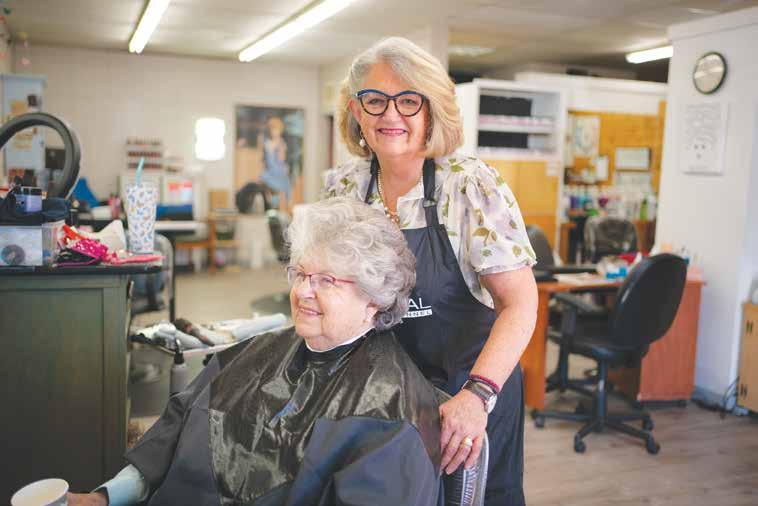
it’s more than just color. Call me a “hairapist,” she said with a smile. “It makes me happy that I have created a safe place to talk.”
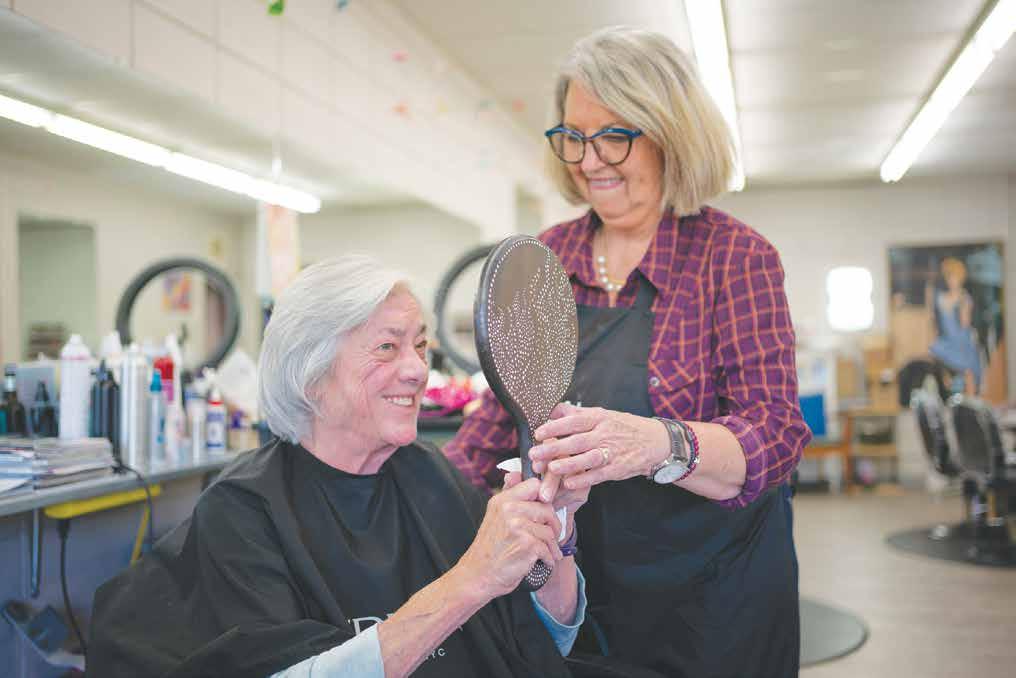
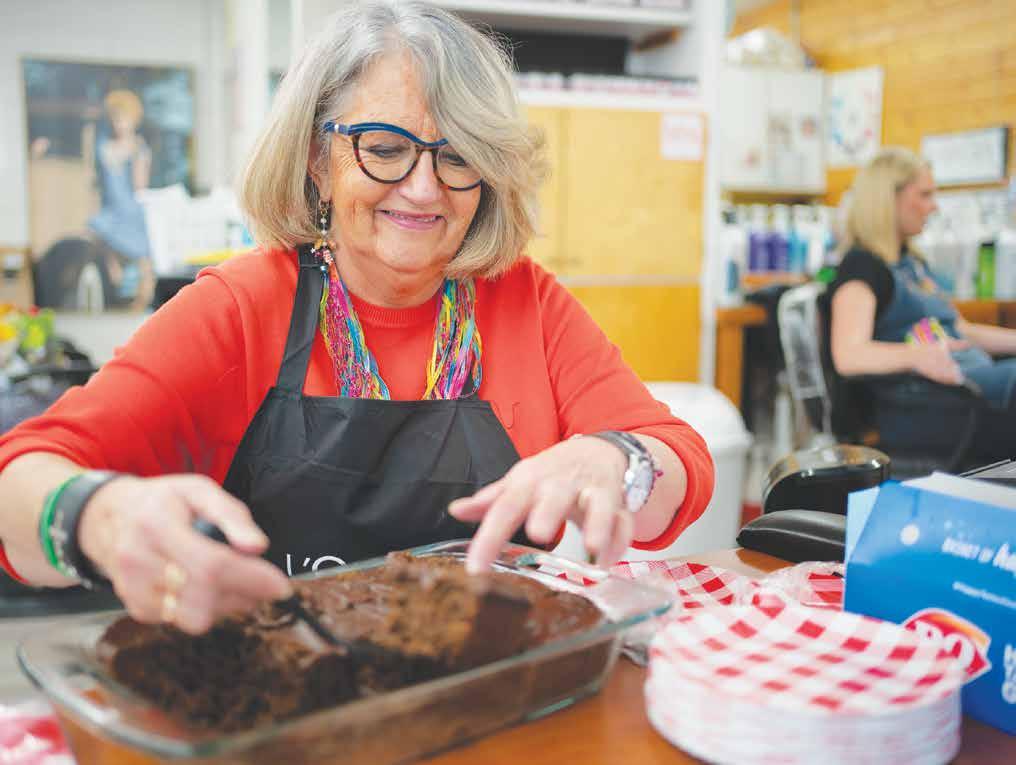
Jackson, shaping the future of entrepreneurship in the valley, lifting up young talent while forging the foundation of community.
And while Holden honed her skills in school, working to stay sharp and on the cutting edge of color and style, her gifts go beyond the typical gab at a turn on her chair.
“Marsha makes me feel like I’m
a part of the tea party,” said Margie Rutford, a client who is has become a friend over the 20 years she’s been coming to Changes.
Holden holds Rutford’s arm, linked at the elbow while she walks her over to a chair. And while both are talking and sharing stories from the every day — Holden takes a towel and squeezes the water from Rutford’s wet hair. Rutford closes her eyes as Holden teases her hair. Rutford looks up and smiles and starts talking about a new baby in
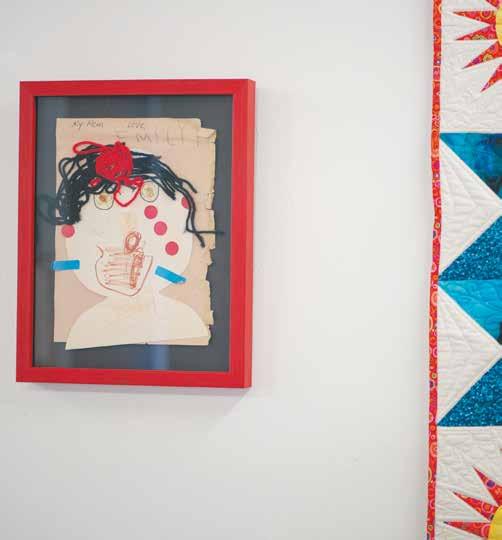
the family.
Holden nods her head, reacting to the story.
“Everyone is always looking for the next best thing,” Claire Andrews said of the bright, shiny new salons in Jackson. “Longevity says a lot about this place. The salon industry is really competitive, and it’s going to be very different,” she said of leaving Changes. “Marsha is rare, and she is willing to teach people. She cares for you.”
The shelves are heavy with decades
of memories and mementos, books and magazines that have inspired and are handed out to inspire. There is a portrait of Holden on the front wall that her daughter did for her when she was in just a little girl.
Propped up on Holden’s mirror is a photo of Andrews sitting in Holden’s chair. Andrews is a toddler in the picture and getting her first professional cut from Holden.
On that day, Andrews was now
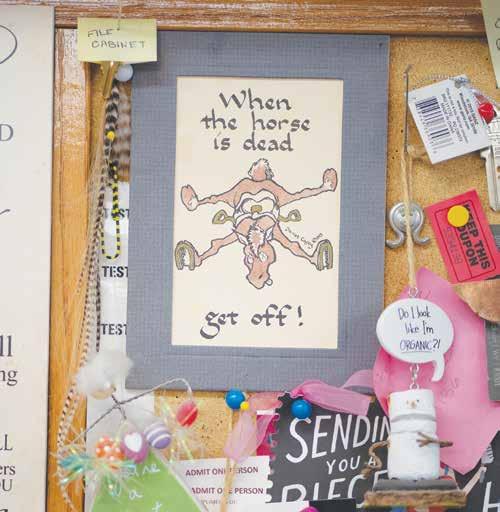
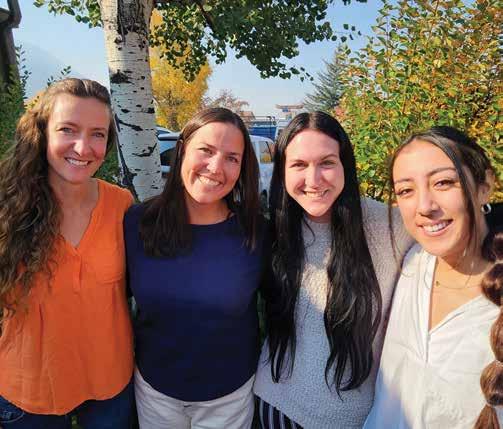
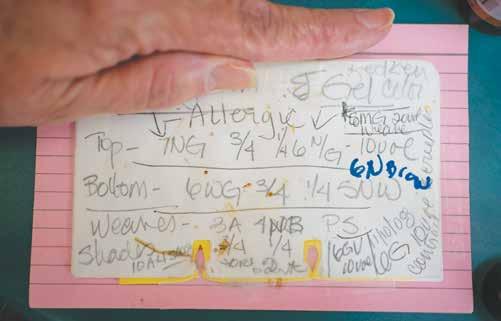
thought, ‘Oh! Here she comes back and she’s transformed,’” Holden said.
standing behind her own chair at Changes, chatting it up with her own client. She was leaving in October, moving to Denver and striking out on her own at a bigger salon.
Holden gave her her first haircut, her first gig at the front desk to learn the ropes and then, when Andrews went to beauty school in Salt Lake, her very own stylist chair.
Holden worked early and often as a young girl growing up in her grandmother’s hotel handling the switchboards.
But is was Miss Warren in fifth grade who first piqued Holden’s interest in hair. Miss Warren, who is listed in Holden’s yearbook only as Miss Warren, was single when she came to Jackson to teach. She had brown hair, cat-shaped glasses and looked the part of a teacher.
But Holden remembers Miss Warren returning from winter break, her hair dyed blond, no more glasses. Miss Warren’s change had an impact. “And I
But it’s more than that. It’s personal to the bone. Radical, even.
Holden pulls out a printed article for me to read: “Radical Connectors.”
“Radical connectors are also fearless,” reads the article found online. “They don’t pick and choose who gets invited into their circles based on how much they have in common with someone, and that takes guts. ... They don’t go through life skimming for the “right” people to share their time with. They see the merit of an open network. You let people in and you’re better for it.”
Someone walks by the window and Holden waves. Another client walks in, and Holden is finishing a story when a new client sits down in the waiting area. The customer looks up and says, “Oh I remember that. …” And the conversation continues to roll on just like that through the day. Contact Jeannette Boner at 307-7325901 or schools@jhnewsandguide.com.
“Behind every great woman ... is another great
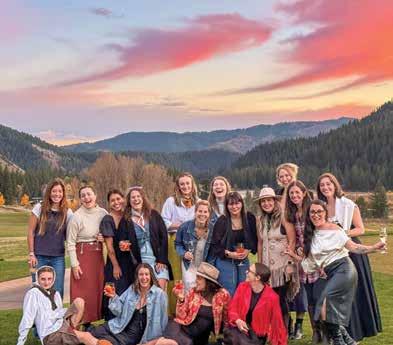
Kaitlyn Anderson
Miriah Atwood
Brandy Borts
Camila Brown (not pictured)
Katie Cooper
Emory Cooper
Luiza Dacenakis (not pictured)
Sara Dery
Morgan Dodier
Valentina Garcia
Carolina Grave (not pictured)
Isabel Kempson
Grace Lutz
Sengen Meyer
Emily Overton
Marielle Robinson
Morgan Scheunemann
Yoseline Tzompa
Olga Vovc
Chloe Zumbrun
its effects:
Prioritizing self-care is one of the most effective ways to manage stress. Engaging in activities that bring joy — such as reading, exercising or simply relaxing — can rejuvenate a parent’s spirit. Taking care of oneself enables a mom or dad to face parenting challenges more effectively.
Seeking support from friends, family or professionals can be invaluable. It is OK to ask for help. Sharing experiences and emotions can lessen feelings of isolation. Joining support groups — whether inperson or online — can provide a sense of community and shared understanding.
• Parenting workshops and groups: Classes that offer insights into stress management and enhancing family dynamics.
• Online communities: Digital platforms where parents can share experiences and advice.
• Literature: Books and articles focused on parenting, stress management, and self-care.
Many women experience a direct correlation between their stress and their physical health, which only adds to the emotional turmoil.
P racticing mindfulness through meditation and deep breathing can reduce anxiety and promote relaxation. Setting aside a few moments each day to engage in mindfulness can significantly enhance overall well-being.
Setting boundaries is key. Overcommitting ourselves can lead to feelings of being overwhelmed, so prioritizing essential obligations can help parents focus on what truly matters.
There are numerous resources available to assist in managing parental stress effectively.
• Peer support and mental health professionals: Therapists and counselors who provide tailored support and strategies.
Parental stress is a w idespread experience among many women, and acknowledging its effects is the first step toward achieving balance and well-being. By prioritizing self-care, seeking support and using available resources, parents can navigate the challenges of parenting with greater resilience. It’s essential to remember that you are not alone. Sharing experiences and strategies can foster a supportive community where everyone can thrive. With the right tools and mindset the impacts of parental stress can be mitigated.
For further information on managing parental stress and its effects, consider exploring the resources available from organizations such as the American Psychological Association and HealthyChildren.org.
For a link to the surgeon general’s report, go to HHS.gov.
Mental Health and Recovery Services of Jackson Hole Executive Director Deidre Ashley is a licensed clinical social worker and has a master’s degree in social work. You can contact her by emailing columnists@ jhnewsandguide.com.


We are proud to support the women who contribute to the creativity and success of businesses in our community.
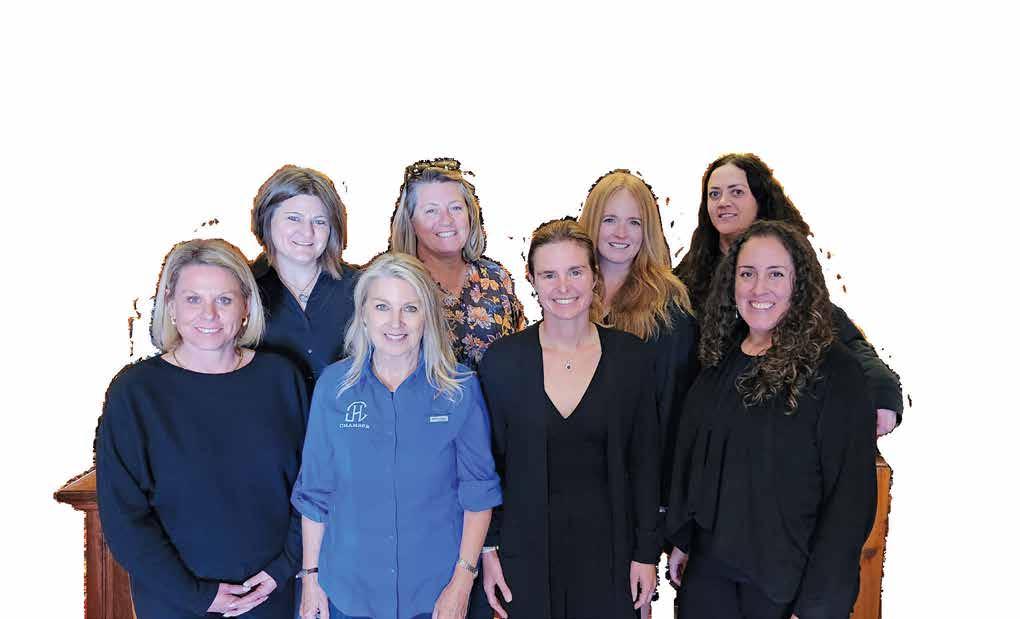
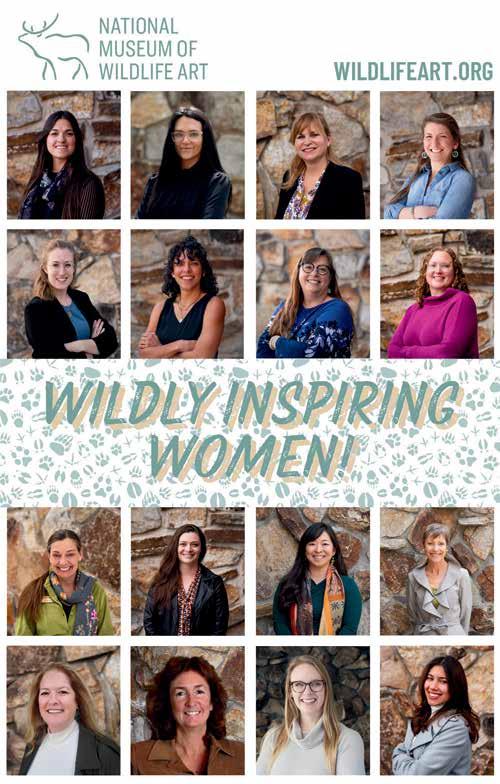
the doctor was calling her directly — and in the middle of the day.
After the initial wave of the diagnosis washed over her, Conover-Keller went into “executive mode” to prepare to fight cancer.
“Whatever needed to be done, I was going to do it,” she said.
And while efforts have been made at the local hospital where she serves as a leader, cancer treatments such as hers still require travel. Her first step was to the Huntsman Cancer Institute, where she saw Dr. Richard Cannon, an otolaryngologist specializing in head and neck surgery.
The hope was to surgically remove the cancer and follow up with radiation care.
The plan was set.
But cancer has a way of disrupting even best-laid plans. The cancer was too close to Conover-Keller’s esophagus. The surgery was canceled.
“My first reaction was I was disappointed,” she said. “Now I have to take that longer journey and I am in unknown territory. I had a picture of what surgery would be like. The unknown turned out to be chemotherapy and radiation.”
Instead of remaining in Salt Lake City, Conover-Keller traveled back to New York to be closer to family while she received radiation and chemotherapy treatments. Through research she found she was a good candidate for proton radiation, which promises fewer side effects than traditional radiation. And so she got started at the Sloan Kettering Institute.
“I wasn’t appreciating how difficult it would be,” Conover-Keller said, reflecting on the treatment. The cancer had grown, and her comfort level had dropped.
Conover-Keller was used to looking at a problem, tracking a course and
HPV vaccine is recommended for routine vaccination at age 11 or 12 years. (Vaccination can be started at age 9.) Two doses of HPV vaccine are recommended for most persons starting the series before their 15th birthday.
Vaccination is not recommended for everyone older than age 26 years.
Some adults ages 27 through 45 years might decide to get the HPV vaccine based on discussion with their clinician, if they did not get adequately vaccinated when they were younger.
Keep in mind that HPV vaccination prevents new HPV infections but does not treat existing HPV infections or diseases. HPV vaccine works best when given before any exposure to HPV.
Studies in the United States and other countries have shown that HPV vaccination is already preventing cancer-causing infections, anogenital warts and cervical precancers. Some data from other countries have found early evidence of a vaccine effectiveness against cervical cancer.
— Information gathered from the Centers for Disease Control and Prevention
finding a solution. But this was difficult and painful. She reached out to others with similar journeys, looking for encouragement. Between the appointments, the scheduling, the tests and the desire to just feel better, ConoverKeller started to cry.
“It was hell,” she said.
“There are no words to describe how sick you are feeling, she said of feeling emotional through the radiation and chemotherapy treatments. “I’m not a huge crier, but I got a lot better at it.”
“It was hard because Fr ed wanted
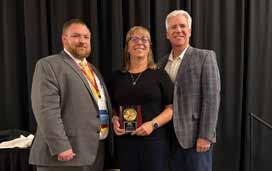
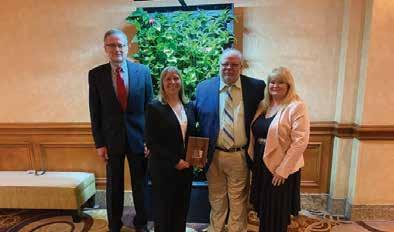


to know how I was feeling so he could help me, and I said, ‘Please don’t ask me.’ It was terrible, just terrible, and also very lonely. It feels like you are being poisoned to death, and your mouth and throat are blistering. I just felt terrible. I wanted to go home so much.”
Buoyed by the hope of returning home, Conover-Keller completed her treatments and celebrated with her own “bell ringing ceremony” as she was encouraged by another Jackson community member’s cancer journey: Parker Felton.
It was time to head home, back to that comforting place.
Cancer chrysalis
Conover-Keller was part of the hospital board that hired the now newish CEO of St. John’s Hospital. Under the leadership of Jeff Sollis, the community medical center has expanded its cancer care.
And the reality of those words rang true as Conover-Keller returned to Jackson and was able to receive the follow-up care that the medical facility had hoped to provide to patients.
“When I got to St John’s, it felt like everyone here wanted to take care of me and wanted me to be comfortable,” she said. “They wanted to make me well again.”
Recovery is a lingering process, and eating can be still difficult. Her taste is gone, and the hope is that some day it will return.
“It’s not like you recover from those things, but your life is permanently changed.
Katharine Conover-Keller
“The board of St. John’s Health has been reviewing demographic data for our community and listening to the growing need for cancer care close to home,” she told the News&Guide last summer just before she began her own cancer journey.
“It is physically, mentally and financially beneficial for patients not to travel long distances for treatmen t, and being in a facility where friends and family can visit and provide constant support is so important for recovery,” she said.
When she talks, Conover-Keller said, she doesn’t sound like old self.
And in a lot of ways she will never be her “old self.”
While cancer created a chrysalis of sorts where ConoverKeller needed to work inward to find healing, peeling off the old to find the new can take some time to adjust.
“There was this feeling after my mother died — and then my sister died — t hat you are never going to be the same again,” she said. “It’s not like you recover from those things, but your life is permanently changed.
“In some ways I will be better; in some ways my life will be more diffi cult,” she said.
“But that doesn’t mean you don’t go on to find joy,” she said with a familiar smile. “I will have more decades with my children and grandchildren, and I will be skiing again this winter.”

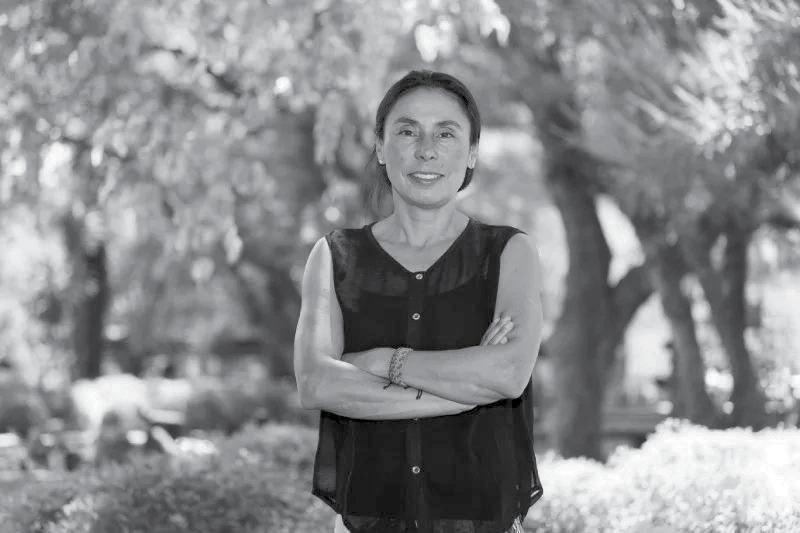
Contact Jeannette Boner at 307-7325901 or schools@jhnewsandguide.com.






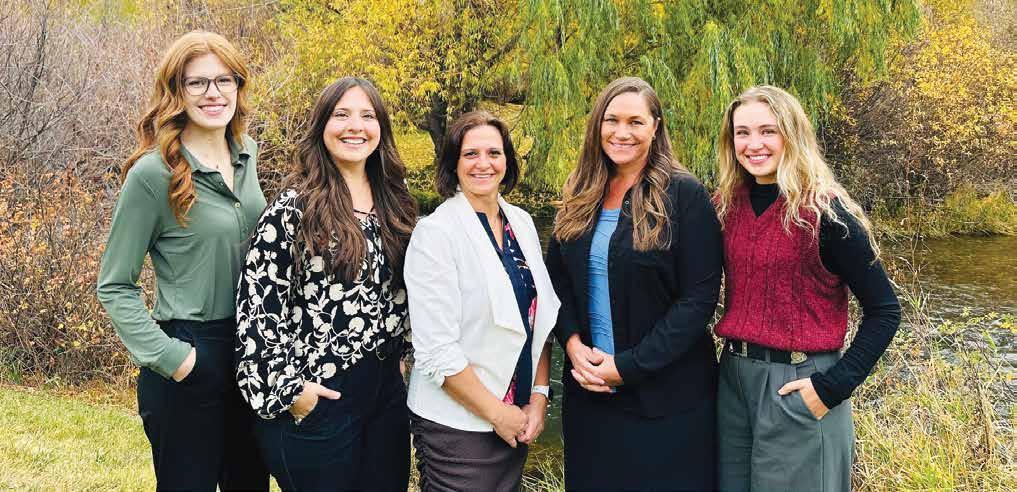
You care about the future. We care about you.
Our commitment to you and to our community will never change. Whatever may happen in your future, we can work together to make sure you’re protected. Let’s connect. You talk and we’ll listen-the way it should be.
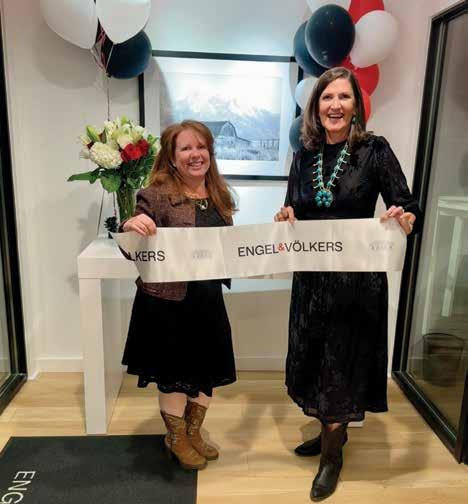
So that question of how does the physical environment interact with people, how do we make that better, I think I’ve brought more of that perspective to it.
We’ve also highlighted health and human services a lot more since the COVID-19 pandemic. I’m proud to have brought child care into the discussion. The town has been able to provide land to a child care facility and is now able to provide free child care at evening town meetings. So it allows caregivers to participate in town government.
Q:Is there a particular moment or challenge that you faced that was really hard in the moment, but you look back on now and it was a moment of growth for you?
A:It was actually when Shelter JH was founded. I think they were founded either at this meeting, or right around it. But we came to a town meeting, and there were folks organized and had signs out front about how hard housing was in Jackson.
It was an intense meeting and one of the few where I teared up and was rather emotional, because sometimes it feels like: What can we do as local government with so much outside and international pressure that we have?
And I highlight that one just because I think that the growing moment for me was that it’s OK to show emotion, and I’ve shown a lot, depending on who you ask.
But then it also highlighted that these issues, like housing for example, are never going to go away. But that doesn’t mean you don’t do everything you can to make it better. I’ve learned that’s an important way to look at it, because you’re not giving up.
ahead, what do you think are some of the challenges that the future mayor and future town electeds face?
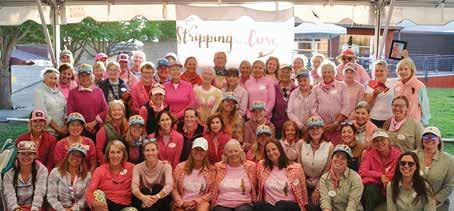
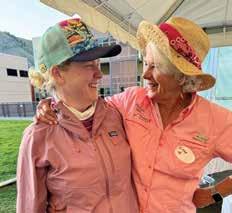
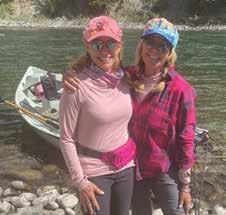
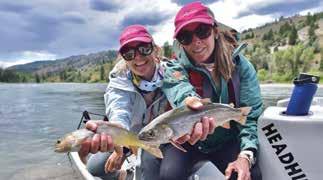
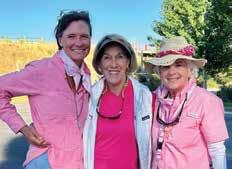
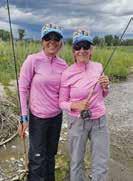
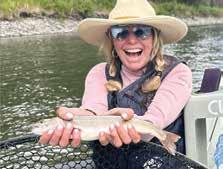
A:It’s the issues like housing and transportation. But it’s also the subtleties of how we work together as people and as a community. It does feel more divisive now than when I began in 2012, and I think that’s directly because of the national landscape. Because it feels that way, sometimes it feels really hard to change, but it doesn’t mean that I should go to the level of making it more divisive. I’m always going to show up as the leader that I want to be.
And getting to chat with folks, realizing that they do have commonalities, because we humans do have a lot in common. When you do know that there is a touchy subject, bring it back to things that we can all talk about. It’s good to bring those things back to that base level and then move forward from there. Obviously there’s a difference in how you make the community great, but coming back to those community values. And I think that is something that we’re going to have to work hard for.
Q:In my research I learned that Bill Briggs, the first person to ski the Grand Teton, taught you how to ski when you were 5 years old. What can you remember from your first time on the slope with him?
A:Yeah, well, I was on Snow King. I was a very cautious skier, and I would say — probably still — not the one flying down the mountain. So for me, actually, skiing with Bill was cool because he gave us a lot of technical insight and like, “Hey, this is how you make your turn.” Now I think back on it, and I liked the way that he taught us to feel in control while enjoying the snow.
Q:You recently launched a podcast centered around stories of people in leadership and inspiring future leaders. What led to you wanting to tackle podcasting and this topic in particular?
See MORTON LEVINSON on 19

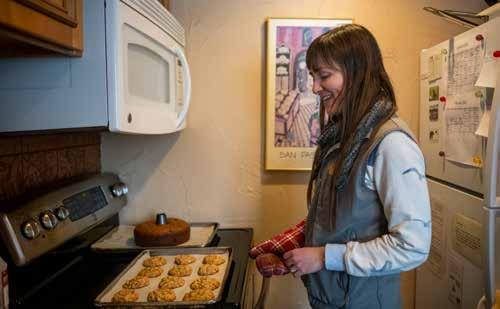
Continued from 18
A:Well, for me, all of this has been about how do we get more representative diversity. And I think it starts with just getting more people in leadership, whether it’s local office or otherwise. And I don’t love writing, but I like talking to people. So a podcast sounded right up my alley there. I don’t have a ton of episodes, but right now I’ve been interviewing a lot of local women and folks that are doing cool things, or statewide women too. My idea is to highlight all of these different avenues that you can make a difference in your community. It doesn’t have to look like me being mayor. It doesn’t have to look like being in office. But there’s a lot of cool ways that anyone can do it and be involved. And I think all of those are important in a civil society.
the longest-serving elected official. What’s next?
ings and ripping down Snow King?
A:I always joke that I’m the oldest, youngest. I’m the longest serving but still the youngest, which is a weird mental thing to be part of. But no, you’ll find me at the Inn for breakfast, which I love being part of that connection in a sense. You will definitely find me skiing on Saturdays at Snow King and wielding all my leadership and community engagement experience into the next phase. I’m not exactly sure where that is, whether that’s consulting and helping other small bus inesses participate in the Jackson landscape and community. You’ll also always see me volunteering through Rotary Club, and I’m actually starting a Girl Scout troop for my daughter too with my mom and my former Girl Scout troop leader. No rest for the weary.
So that’s a pretty fun full circle for me, too.
Contact Kate Ready via schools@

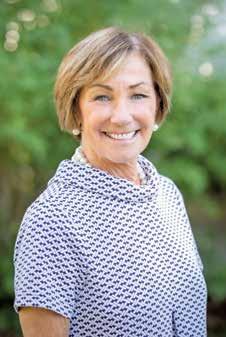
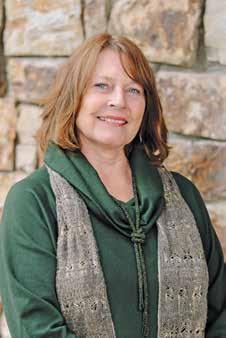
Sharing the same passion for Jackson, Judy & Marina have been serving the financial needs of our town for over 25 years. Their expertise, coupled with a love for the community, has made them invaluable resources for our clients. Together, they bring a wealth of experience to Jackson and a deep understanding of the clients they serve.

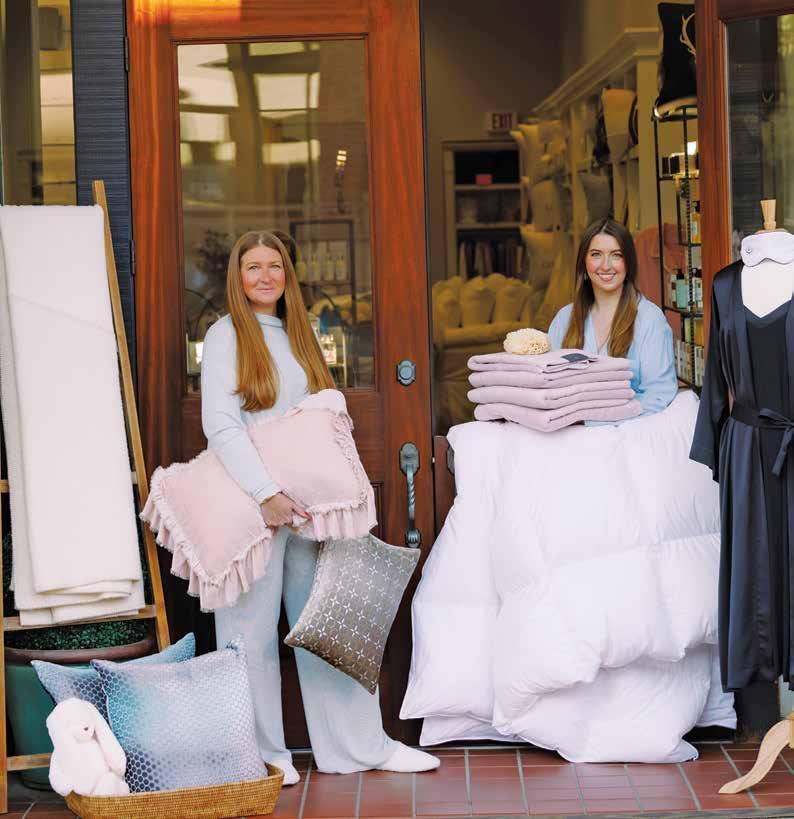
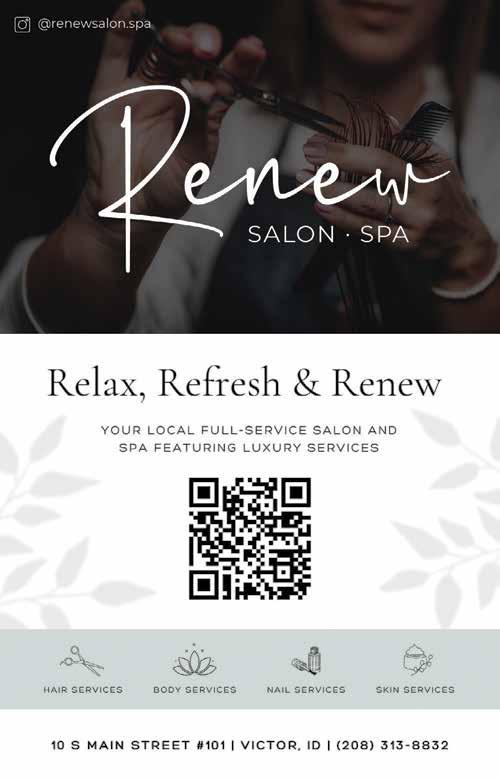
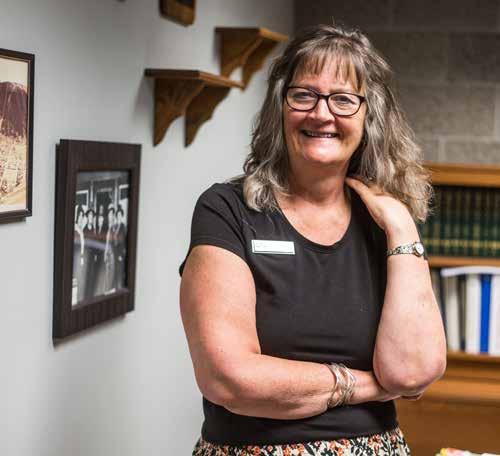
even 20 years ago. Daigle said elections have always been under the microscope, but she did believe today is more tumultuous. She is concerned about how tense and irate the topic of elections is.
“With our new secretary of state beating the drum that we have fraud, that to me plants that seed of doubt in the public,” she said. “You start becoming suspicious of what your local elections are doing, whoever’s responsible for it. I think the clerks, being the chief election officials for the counties, take that responsibility very personally.”
It’s only one of the countless roles
clerks take on. In many cases the clerk acts as a county administrator in smaller communities. Daigle felt a great deal of pride at the end of her tenure knowing all she had contributed, including making record keeping more accessible.
“By the time I left, I felt as though the clerk’s responsibilities were more of the mom of the county,” Daigle said. “When anybody had a problem they called the clerk’s office, regardless of what it was. Because the clerk’s office knew if they couldn’t handle the situation or answer that question, they knew who to contact to do it.”
Contact Jasmine Hall at 307-732-7063 or state@jhnewsandguide.com.
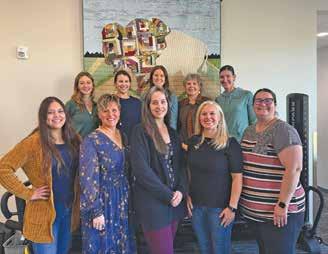
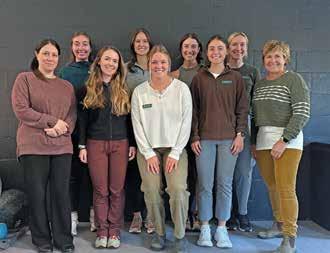

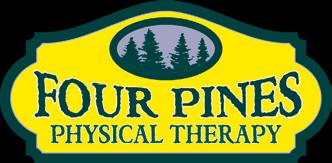
of the big draws for Halpin’s next race, which began Oct. 24 in the eastern Himalayan Buddhist kingdom of Bhutan and is known as the Snowman Race.
It was the second time the race had been put on by the kingdom, which invited 16 runners to race more than 126 miles and 17,900 feet of elevation in five days through the Himalayan wilderness. The participants ran the race and acted as ambassadors, sharing what they learned from the Bhutanese on how climate change has impacted such a delicate mountain ecosystem.
The entire course offered insight into the effects of climate change in the area, which are evident in the receding glaciers. Bhutan is carbon negative, and its glaciers feed the area’s rivers, which in turn irrigate agricultural lands and power its hydropower plants. But as glaciers melt and glacial lakes become more at risk of breaching their walls, flooding has become a serious concern for the fragile environment and its people.
Halpin acknowledges the irony of flying internationally to a race for climate change awareness, but the kingdom of Bhutan invited her and the other participants, and all racers will do their best to make up for it by sharing their experience with their wide-reaching audiences.
“The country is inviting us to be ambassadors to be able to spread the message from this very isolated country to share it with everybody we know,” Halpin said. “With our sponsors, with people who follow us, other trail runners and climbers and adventurers, the entire outdoor community. They want us to see it firsthand and then spread the message.”
As for the actual race, Halpin hoped to just complete it, seeing that many had to be evacuated because of high-altitude sickness two years ago in the first race. (Results were unknown at press time.) She feels honored to be selected
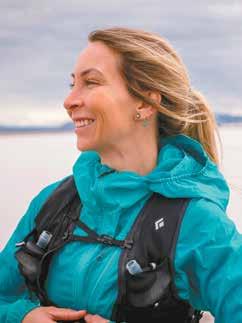
Kelly Halpin is passionate about bringing awareness to the problem of climate change. “My entire life is in the outdoors,” she said. “It’s probably the bigest issue of our time right now for humans.”
and invited to run in such a race, but for her the top priority was bringing aware ness to the most pressing problem of our time.
“My entire life is in the outdoors,” Halpin said. “It’s probably the biggest issue of our time right now for humans. Climate change is going to affect every body across the globe, but starting with these smaller communities who are feeling these huge impacts, who don’t have the resources that we do.”

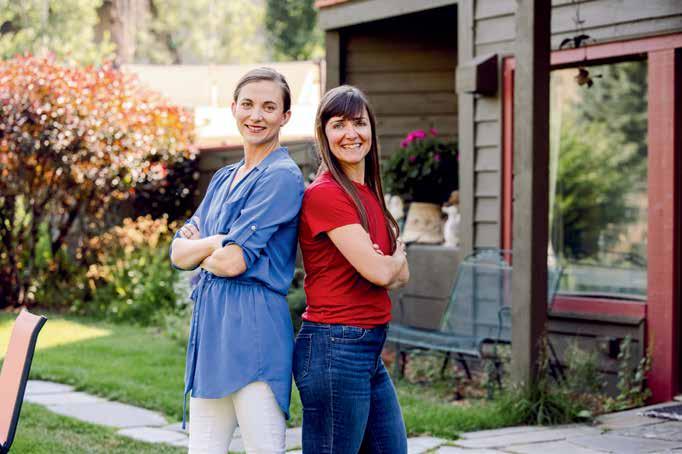
It’s amazing what a dream can do. What started with a shattered knee turned into a professional running career that has brought her to one of the most spectacular places on earth. Perhaps with more races like these and more awareness of the global issue, the next dream will be one of uniting the population in the fight against climate change.
Contact Kyle Leverone at 307-7327065 or sports@jhnewsandguide.com.

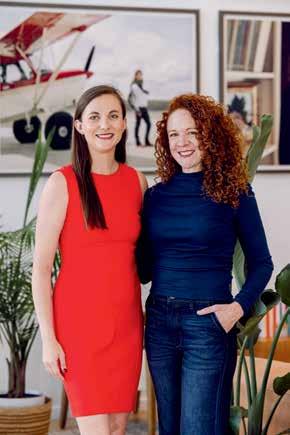
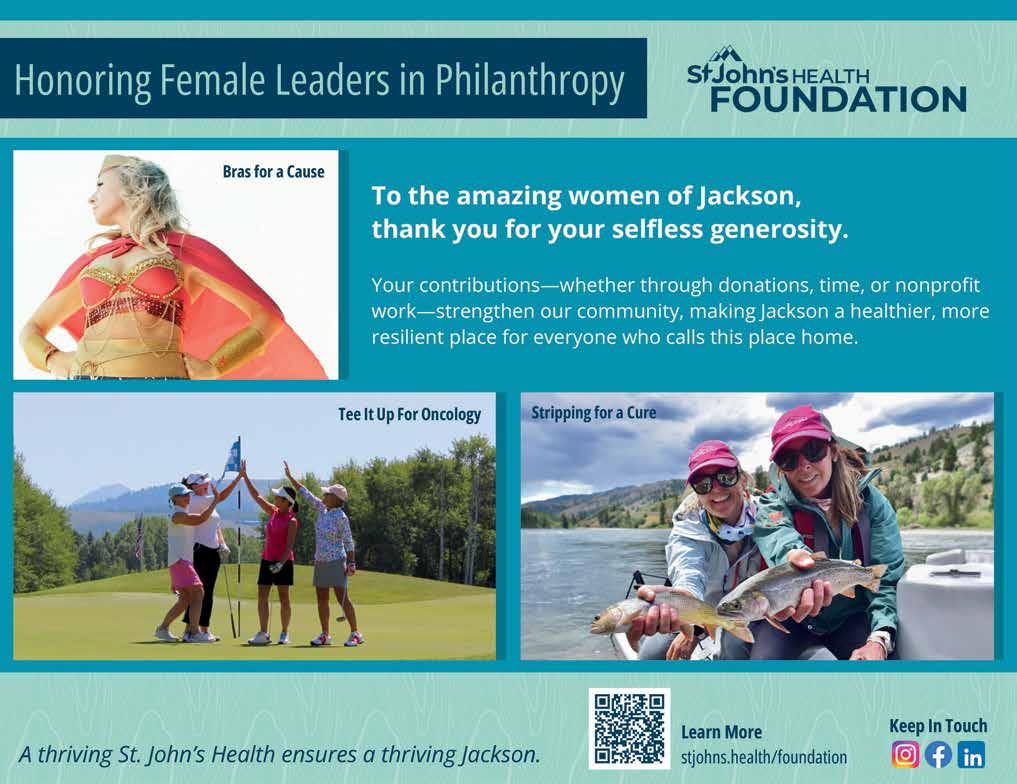










Share your newest family member with the community for FREE!
All we need is their full name, date of birth and a photo! Email: babies@jhnewsandguide.com

45 years ago ...
• Many states had enacted new sexual assault laws in recent years, and Wyoming was one. “It’s the first law in the history of Wyoming that gives protection to the victim,” said Meredith Morrow, past chair of the Wyoming Commission for Women and a found er of the rape crisis center in Cheyenne.
• Jane Thorkildsen was Jackson’s Junior Miss . Mary Martin was the Wyoming’s Young Career Woman of the Year, Kelly Milligan was Jackson Hole High School valedictorian, and Wendy Hamilton was crowned Wyoming’s Miss High School Rodeo Queen.
• Teton County Commissioner Muffy Moore disliked name tags but always made sure to wear one at commissioner associa tion meetings. “If I don’t wear it, people assume I’m somebody’s wife and I’m not of interest,” she told the Jackson Hole News.
• The owner of Bru’s Buns and Breads was moving her bake shop from a log cabin on King Street to the Hole in the Wall on Cache Street. Bru , full name Laurel Wicks, planned to open a small restaurant called “The Bunnery” at her new location.
of the Board of County Commissioners, succeeding Sandy Shuptrine.
• Barbara Kenyon, an agent with Real Estate of Jackson Hole, was elected to be president of the local Rotary Club , the first woman in that position.
• Bikini-clad women wrestled in cooking oil in a plastic pit at the Mangy Moose as part of the establishment’s Winter Festival. The crowd’s enjoyment “seemed to depend less on the oiliness of the women than on how well-oiled the spectators were,” reported the Jackson Hole News.
• Michele John, director of the Task Force on Family Violence and Sexual Assault, was named the Jackson Hole Chamber of Commerce Citizen of the Year .
• The Jackson Hole News profiled Joni Rosendahl , a mother of three who had opened the Jackson Brew Pub with fiance Al Upsher and recently joined the Jackson Planning Commission. “Doing different things just seems to make you more of a whole person,” she said.
• High school junior Affie Burnside was elected president of the Wyoming Association of Student Councils.


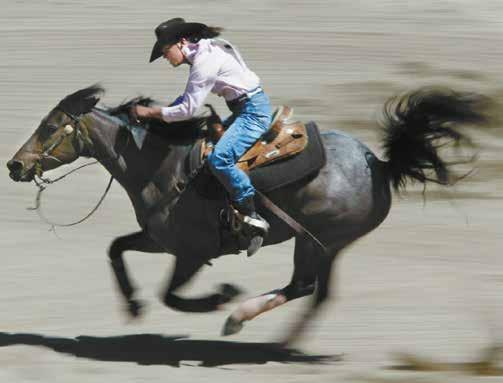
Resource Center
• Heidi Schmillen was a lineman for the Broncs junior varsity football team. “I’m basically just one of the guys but with longer hair,” she said.
• At St. John’s Episcopal Church, Mary Erickson was ordained as a transitional deacon, part of her journey to becoming a priest
• Center for the Arts was getting a new executive director: Clare Payne Symmons.
• Eighteen ninth-grade girls from
Wyoming, Nebraska a nd Idaho came to the Kel ly Campus of Teton Science Schools for the Young Women in Science Program . They worked with a pika researcher, debated wolf management, studied fire ecology, studied water quality and listened to a panel of women in science careers talk about professio nal possibilities.
• Nikiya Adomaitis, a junior at Jackson Hole Hi gh School, turned pro on the International Series of Champions snowmobiling circuit days after her 16th birthday.
— Compiled by Jennifer Dorsey
at jhnewsandguide.com/subscribe















Kelsee Brock, Danielle Carozza, Holly Catalina, Halie Dedering, Laryssa Dotson, Rebecca Elroy, Libby Erker, Olivia Flake, Anna Foster, Maya Gamble, Gabbie Goetz, Erica Hawley, Paige Hobson, Abigail Horton, Jaye Infanger, Maria James, Lori Kaczmarek, Sarah Kennedy, Kristin King, MacKenzie Krall, Kristina Lawson, Genessa McVay, Brooke Peacock, Danielle Price, Darcey Prichard, Mica Ratzlaff, Jessi Ruscetta, Paige Schneider, Ramsey Skrepenski, Ashley Wilga, Stephanie Wright, Not Pictured: Anne-Marie Bailey, Megan Dunham, Rachel Mansun
Thank you to all of you who help get the news to our community 312 days a year.


















